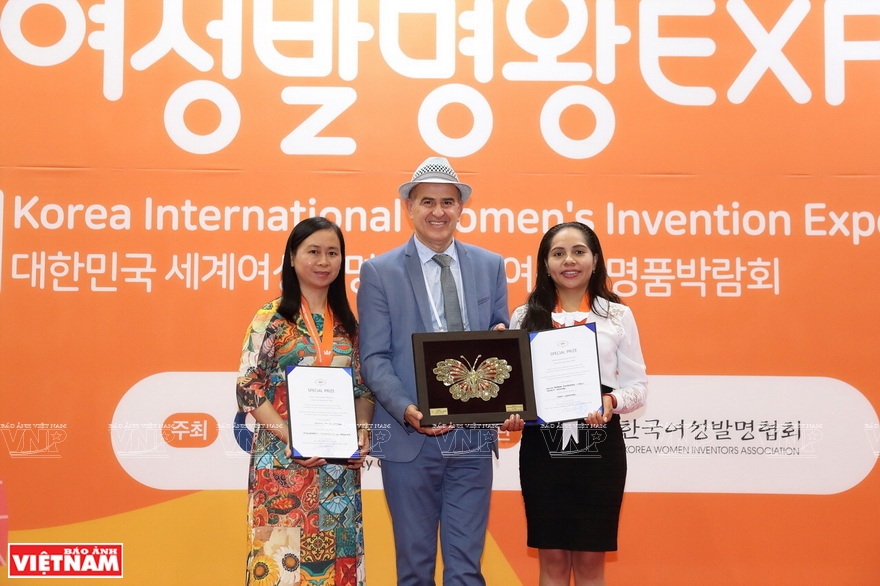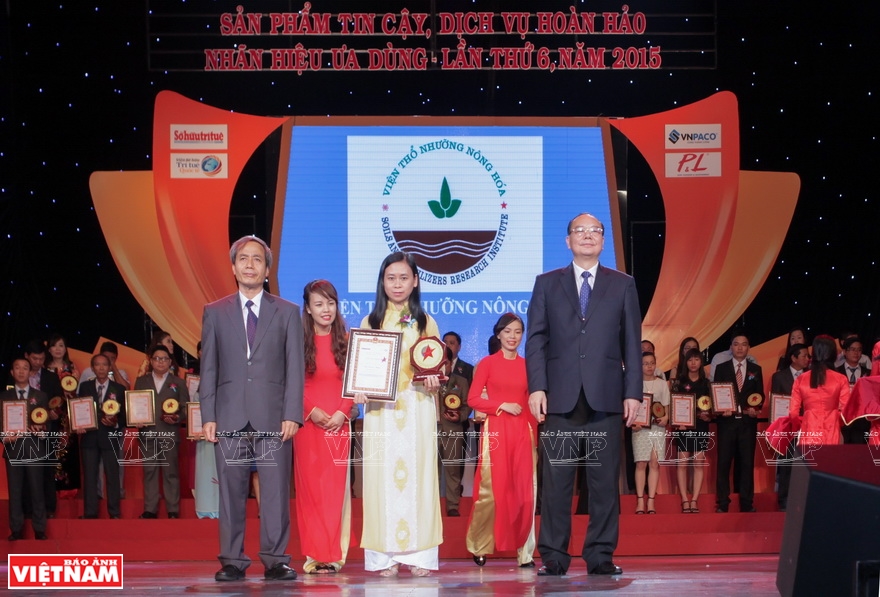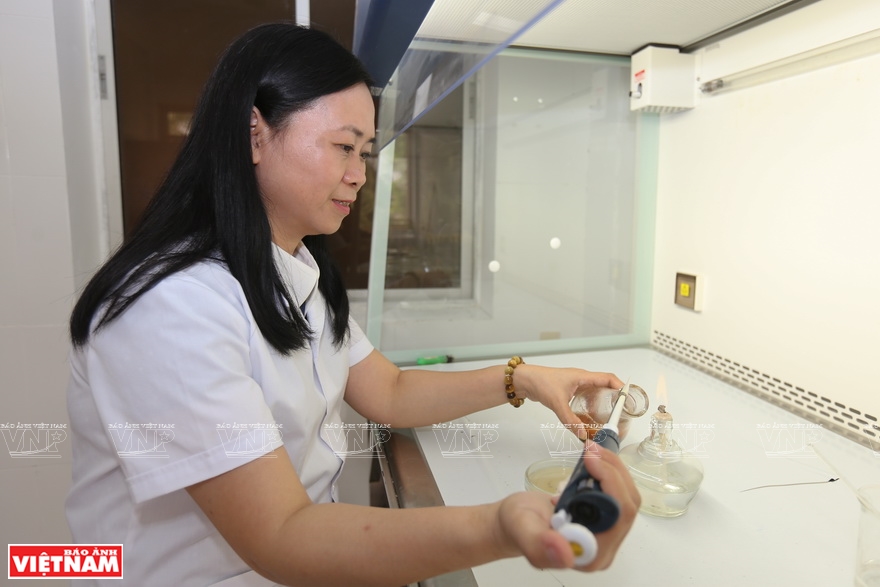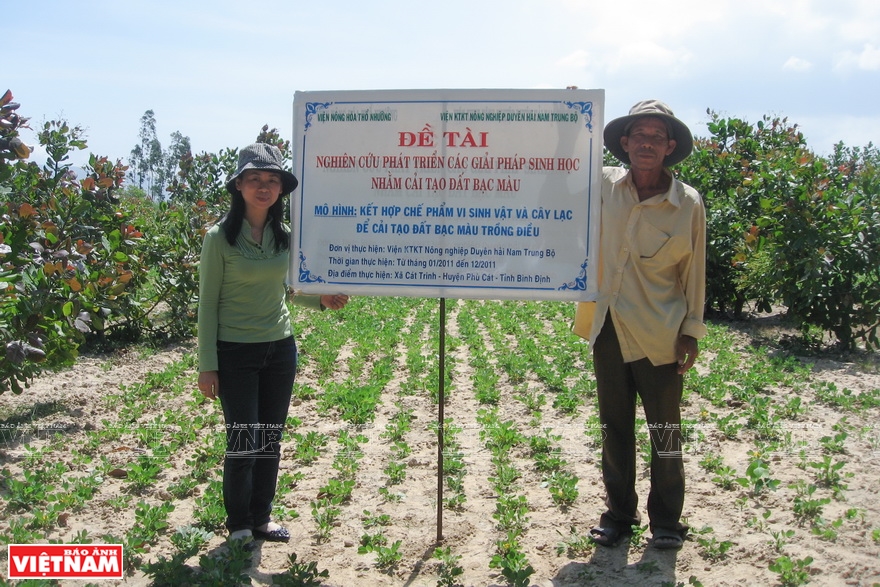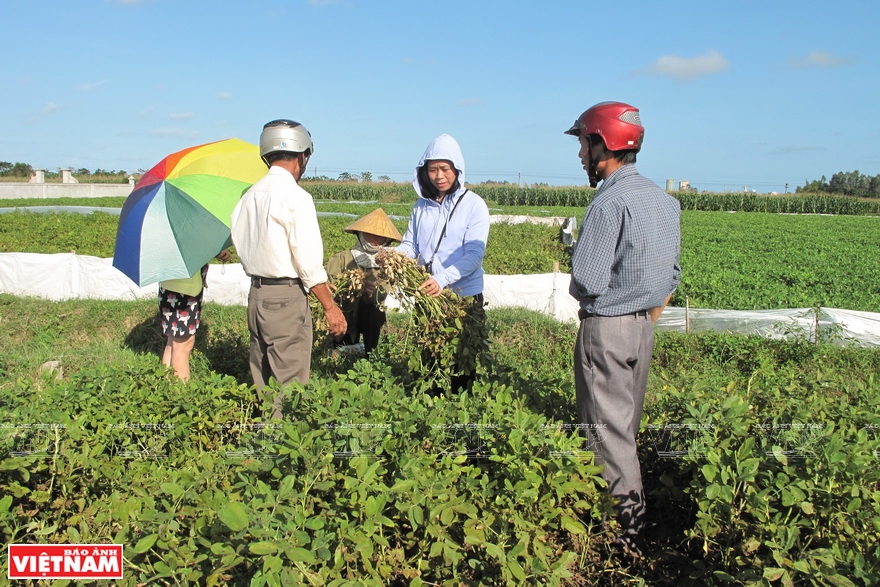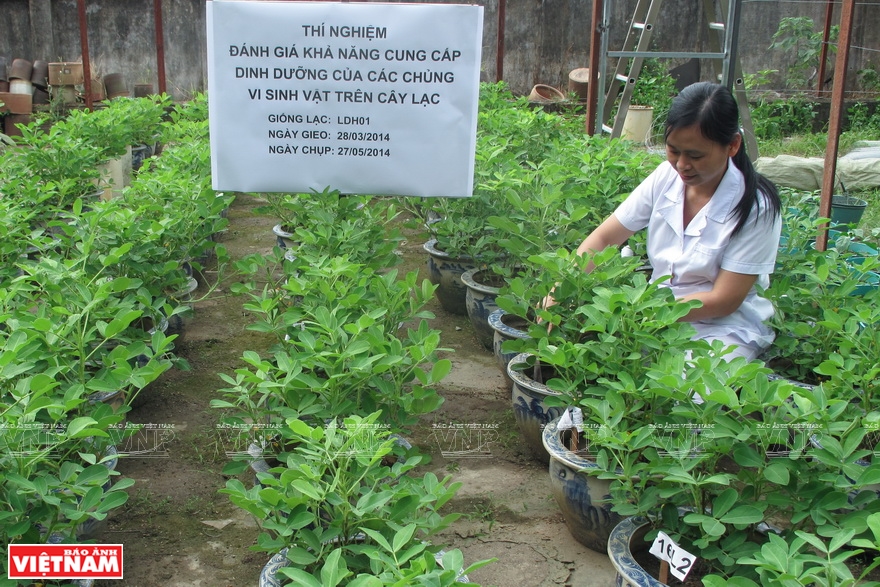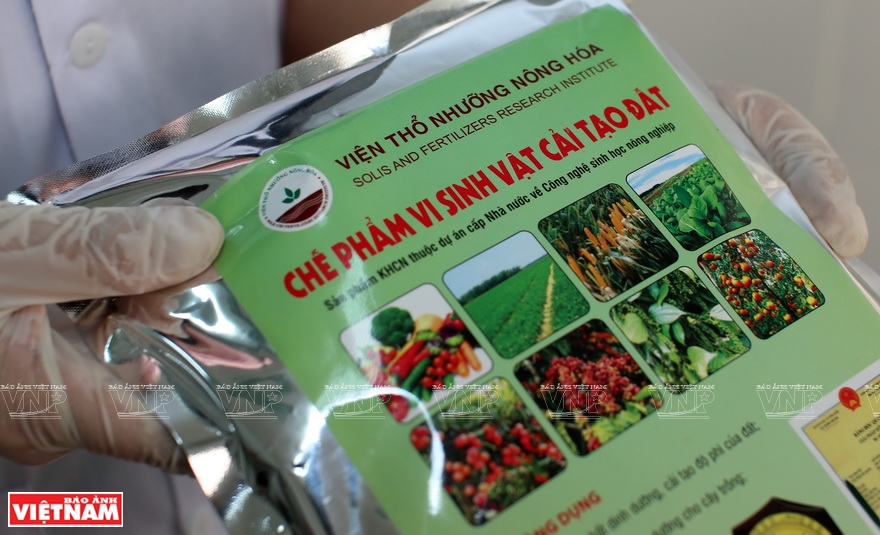Working at the Soils and Fertilizers Research Institute at the Vietnam Academy of Agricultural Sciences, Nguyen Thu Ha has visited many agricultural areas across the country. Ha finds that agricultural land in Vietnam has become exhausted and seriously degraded in a large area which has been increasing annually. This is the result of the practice of rotating four crops a year with the overuse of chemical fertilizers.
Latest statistics show that Vietnam is among the world’s top users of chemical fertilizers, using nearly 7.7 million tons each year. Yet, the efficiency rate only reaches over 40%, and even as low as 10-20% in some areas. This means Vietnam annually loses around 4.62 million tons of fertilizers, causing a great waste for farmers.
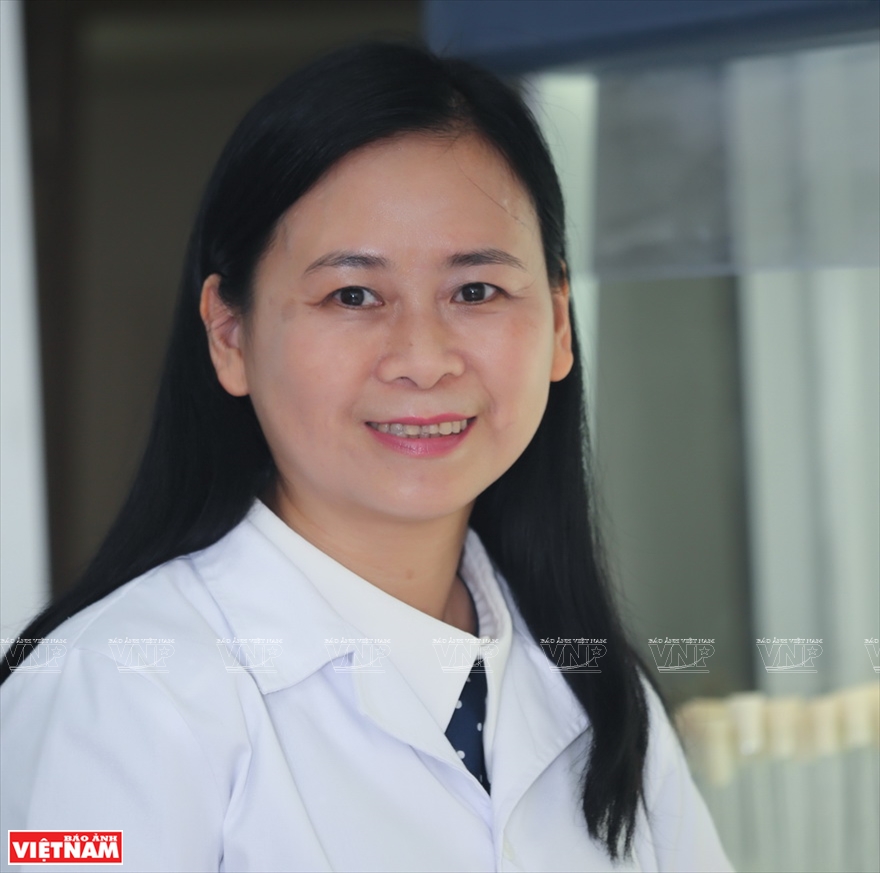 Nguyen Thu Ha . Photo: Viet Cuong |
The overuse of chemical fertilizers has also seriously degraded the soil and caused imbalance in the soil’s nutrition.
One of the countries hardest-hit by climate change, Vietnam has been suffering serious drought, which is another cause leading to the poor quality of soil.
Given the alarming situation in agricultural production which “is impoverishing the soil”, Ha and her colleagues have studied soil samples in areas affected by droughts or soil infertility and found the way to improve the soil quality by introducing beneficial microorganisms from the human body into the soil.
… to sustainable solutions
Ha’s soil-improving microorganisms are divided into two main groups. The first is for nutrition metabolism and the second is for moisture storage. The first group includes nitrogen-fixing, phosphate-solubilizing and potassium-solubilizing microorganisms which are suitable for impoverished, infertile and dry soil.
The second group includes microorganisms which help keep moisture in the soil. These microorganisms are introduced in drought-hit areas.
From 2014, Ha’s microbial preparations have been used in sandy areas nationwide and proven their effects.
The products have been used in a total area of 100 hectares in peanut and mango-growing areas in Binh Dinh and Nghe An provinces which have the largest area of sandy soil.
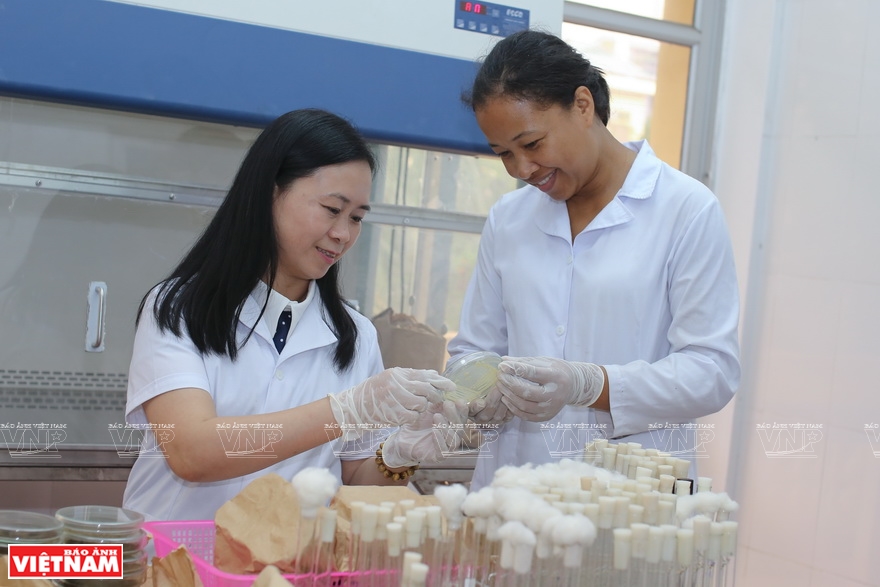 Ha with a colleague at the Soils and Fertilizers Research Institute’s lab. |
The use of microorganisms has helped raise the productivity in these areas by 15-20% compared to the traditional farming method.
“Unlike chemical fertilizers and pesticides, the use of microorganisms is safe for humans and the environment. It is an environmentally friendly method to improve the fertility of soil and help balance the ecosystem in a sustainable manner,” Ha said.
Given their low costs, simple use and preservation, and suitability to different types of soil and crops, Ha’s microbial preparations are a sustainable choice for Vietnamese farmers.


